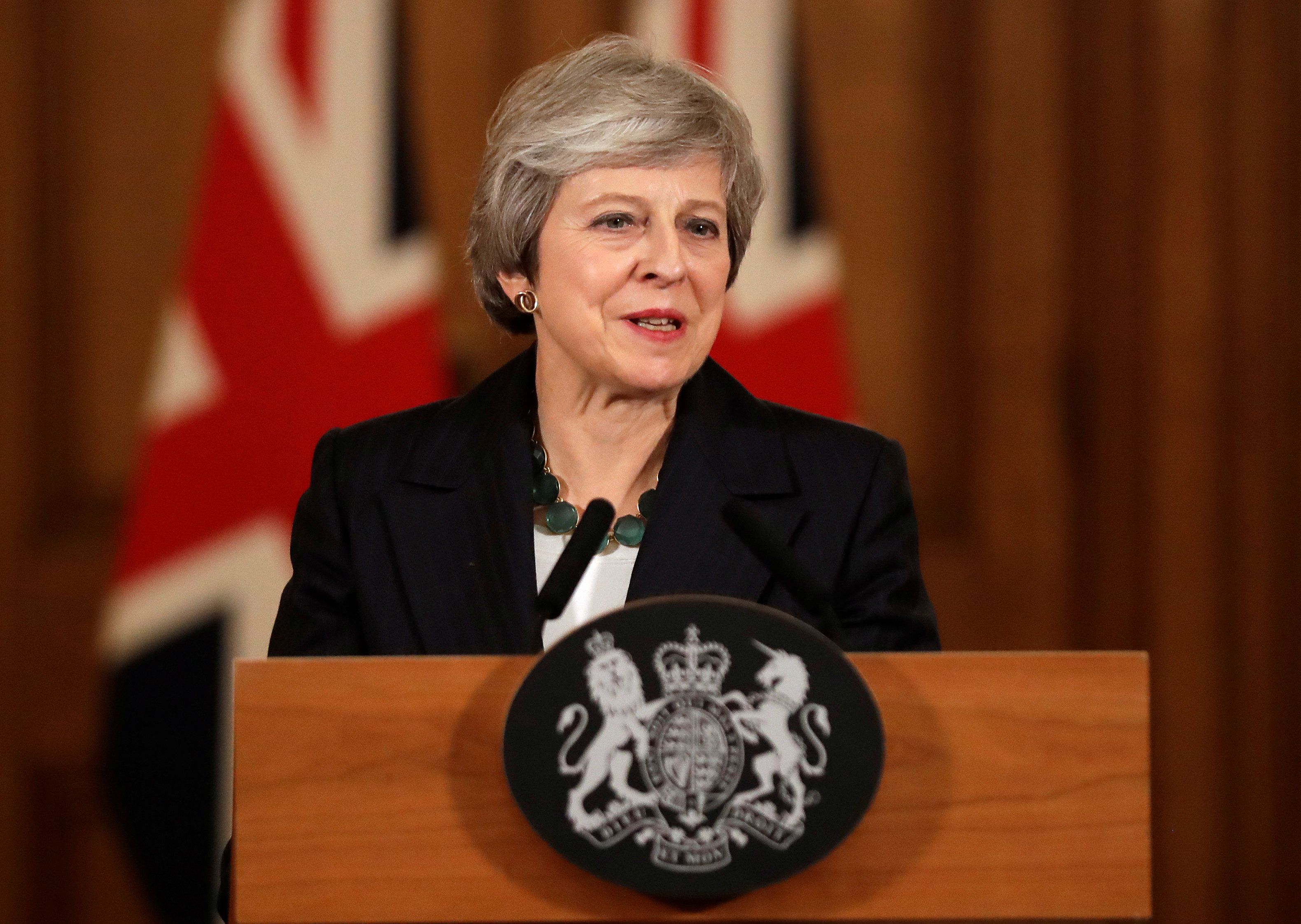A fragile peace within the UK’s governing Conservative Party has been shattered in the past two days, with the fate of Brexit negotiations and Theresa May’s government in the balance.
To put it politely, the prime minister’s Brexit plan was never going to be an easy sell. Here’s a snapshot of the challenges she still faces:
Theresa May leads a party and a nation deeply divided over what sort of relationship they want with Europe. Many who hope to ensure European institutions have no future say in how the UK crafts its laws and controls its borders will never be satisfied with anything less than a so-called “Hard Brexit,” a sharp break from the EU and its rules. On the other side, those who believe the UK must maintain as much continued access as possible to European markets see Hard Brexit as a blind leap from a speeding train.
Since taking over from David Cameron in the immediate aftermath of the Brexit vote, May’s task has been to develop a plan specific enough on the terms of exit to win a green light from EU negotiators and vague enough on the future of UK-EU economic relations to prevent her party from dividing in two. She then needed to persuade her cabinet ministers to publicly back the plan. Then, the proposal would have to pass muster in 27 European capitals and a vote in the House of Commons.
Forty-eight hours ago, it appeared the best argument for her makeshift compromise, a plan that would leave the UK in a temporary customs union with the EU to avoid restoration of a hard border between Ireland and Northern Ireland, was the lack of a clear alternative, either to her proposal or her leadership. That may still be the case. But on Thursday, Dominic Raab, her Brexit secretary, became the seventh minister to quit May's cabinet in the past year, igniting an open revolt from some in the Hard Brexit camp. Tensions between May and this faction are likely to spike between now and mid-December, when a vote on the deal is expected in parliament.
What’s next? May, who used a press conference after Raab’s resignation yesterday to appeal directly to the British people, vows to soldier on and advance her plan. Some within her party have called for a vote of no-confidence in the prime minister, and it remains unclear as of Friday morning whether their number is enough to force one.
The ultimate Brexit questions remain:
- Is it possible to craft any Brexit deal that can win approval both in the UK and across Europe?
- If not, is the UK doomed to crash out of the UK toward an unknown future?
- Might Britain be headed instead toward a second Brexit vote?
- If so, and it produces a different outcome, how can future British governments mind the gap in public and official opinion that Brexit has created?
- If a second vote were to produce the same outcome, what would come next?
The ongoing political chaos in London suggests we’re no closer to answers.
